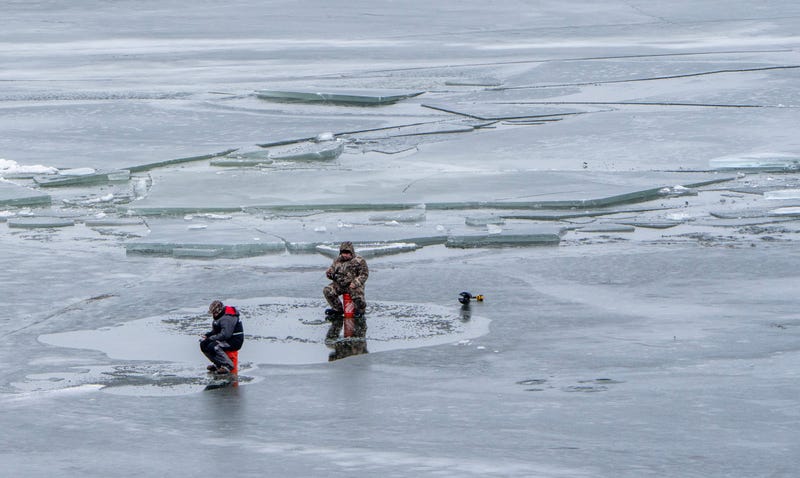
MECOSTA COUNTY (WWJ) - A Mid-Michigan water rescue ended in tragedy late Monday evening when a 59-year-old ice fisherman fell through ice and died, authorities confirmed.
The Mecosta County Sheriff's Office said deputies were dispatched shortly after 9 p.m. on Monday, February 26, on a report of a missing person and possible water rescue in the area of 65th Ave. near Madison Road in Martiny Township, about 30 miles west of Mt. Pleasant.
According to deputies, a 59-year-old man had fallen through ice and had been found by family members, but they were unable to get him out of the water.
The call prompted a large-scale response from authorities with help from the Barryton Fire, Fork Twp Rescue, Chippewa Twp Fire/Rescue, Morton Twp Fire/Rescue with hovercraft, Nottawa Shermon Twp fire/Rescue with airboat, Mecosta County EMS, Mecosta County Sheriff Office Dive Team, Medical Examiners office and Meceola Central Dispatch.
Upon arrival, rescue crews were able to reach the man and get him out of the water, but he was no longer breathing.
"Despite all life-saving efforts being attempted, the male could not be resuscitated," the sheriff's office said.
Mecosta County Sheriff Brian Miller warned all residents and visitors to the area to stay off ice on any of the lakes as conditions continue to deteriorate.
"Due to recent warmer temperatures, the ice on the lakes in no longer stable," he advised.
The warning comes not long after the National Ocean and Atmospheric Administration announced on Feb. 13 that the Great Lakes have reached a "historic threshold" and reached a record low of ice cover basin-wide.
NOAA measured ice coverage on the Great Lakes ice coverage at 2.7 %.
Coverage on each of the lakes was measured as follows:
• Lake Superior 1.7 %
• Lake Michigan 2.6 %
• Lake Huron 5.9 %
• Lake Erie 0.05 %
• Lake Ontario 1.7 %
Lakes Erie and Ontario are tied with their records respectively with near ice-free conditions.
“We’ve crossed a threshold in which we are at a historic low for ice cover for the Great Lakes as a whole,” says GLERL’s Bryan Mroczka, a physical scientist. “We have never seen ice levels this low in Mid-February on the lakes since our records began in 1973.”
